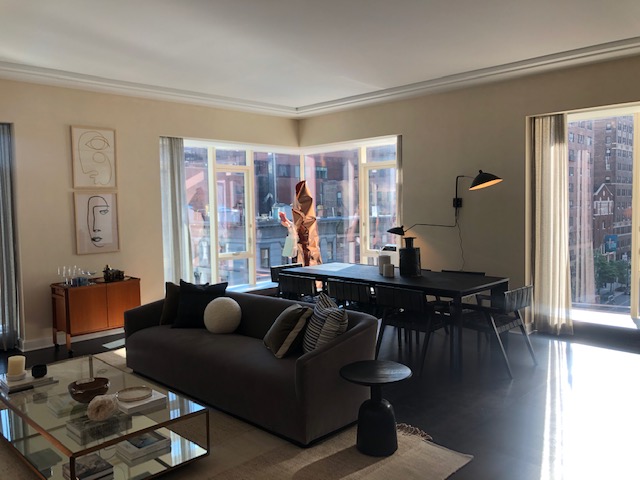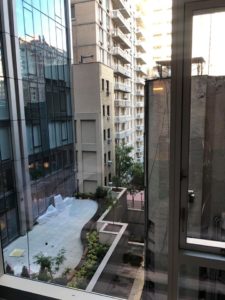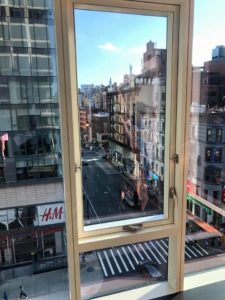Apartment Aesthetics: Renovations for Apartment Dwellers
There are plenty of advantages to apartment living. It’s less expensive, there are few if any expensive home maintenance concerns, and you’re free to move elsewhere at the end of your lease. That said, you sacrifice certain things for that flexibility. You can decorate and renovate to an extent, but it’s not your space to do with as you please. There are restrictions based on the terms of your lease, and breaking them may cost you dearly or, at worst, get you evicted. It may take some research into the details of your lease agreement and possibly a little negotiating with your landlord, but in many cases, you can affordably and easily make changes that will put your special mark on an otherwise humdrum space.
Painting
Painting is the most basic and simplest renovation for apartment dwellers. Some rental companies have restrictions concerning colors or whether you’re allowed to paint at all. A landlord may withhold your security deposit or levy a fee per wall if you don’t repaint over the color you add before moving out. Try to agree with your landlord on a shade that works for both of you so you don’t get charged extra, and ensure the color you select can be easily painted over. If you are granted permission to paint, look to calming, comforting colors like blue and green shades, and avoid reds which can be stress inducing.
Wall Decoration Options
Wallpaper is a more problematic situation than painting over a few walls. If you put up wallpaper only to remove it when your lease is up, you’re creating a lot of work for yourself, and any damage will mean a hit to your bank account. Wallpaper is usually not the best choice for an apartment, but there are wall-decorating alternatives. You can go with removable wallpaper, or vinyl decals that can be removed without damaging the paint. Or, you could get creative with wallpaper by adding the pattern you like to the back of a large frame that can be hung from the wall. And there’s always the option of hanging your favorite artwork throughout the apartment.
The Right Tools
You may have a nice, powerful canister vacuum cleaner and full-sized brooms and mops, but you may need to find cleaning tools that are better-suited to the needs of cleaning an apartment rather than a house. If your intention is to renovate your apartment, you’ll need a versatile vacuum cleaner capable of picking up grime, hair, and dust from small crevices and behind furniture. You’ll need a vacuum with attachments that doesn’t take up much space but which is effective on multiple surfaces, from carpet to hardwood and tile.
Kitchen Creativity
One of the most common drawbacks of apartment living is the lack of kitchen counter space. There’s usually not much you can do to improve the situation, but you can always get a little creative and use your imagination. Add a small, wheeled table that will fit into small spaces and can be removed as needed. Or, look for a narrow sideboard that won’t take up much width but will come in handy if you need to chop an onion or toss a salad but don’t have anymore counter space left for it. When not in use, it could make an attractive decorative element covered with a decorative tablecloth and fresh flowers or pottery.
Creating an apartment living space that’s uniquely yours takes a little creative thinking, but there are many ways to put your stamp on it without getting into hot water with the landlord. If you intend to paint or make other changes to the wall space, always talk to your landlord first and get in writing any agreement you come to that’s beyond the terms of your lease.
Image courtesy of Pixabay.com
Written by: Erin Reynolds of diymama.net | erin@diymama.net










